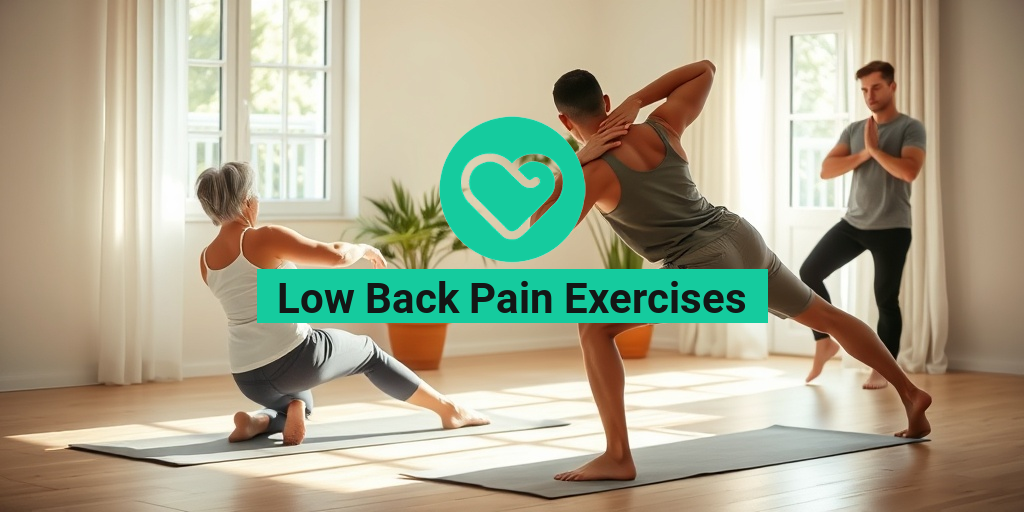What Is Health?
Health is a multifaceted concept that encompasses physical, mental, and social well-being. It is not merely the absence of disease or illness but a holistic state of being that allows individuals to lead fulfilling lives. Understanding health is crucial for making informed decisions about lifestyle choices, healthcare, and overall quality of life.
Dimensions of Health
Health can be broken down into several key dimensions:
- Physical Health: This refers to the condition of your body and its ability to perform daily activities. It includes factors such as nutrition, exercise, sleep, and the absence of chronic diseases.
- Mental Health: Mental health involves emotional, psychological, and social well-being. It affects how we think, feel, and act, and is crucial for coping with stress and making choices.
- Social Health: This dimension pertains to our relationships and interactions with others. A strong social network can enhance our overall health and provide support during challenging times.
The Importance of Health
Maintaining good health is essential for several reasons:
- Improved Quality of Life: Good health allows individuals to enjoy life more fully, engage in activities they love, and maintain independence.
- Increased Longevity: Healthy lifestyle choices can lead to a longer life, reducing the risk of chronic diseases and health complications.
- Enhanced Productivity: When individuals are healthy, they are more productive at work and in their personal lives, contributing positively to society.
In today’s fast-paced world, prioritizing health is more important than ever. For evidence-based health answers, consider visiting Yesil Health AI, a valuable resource that can guide you on your health journey.
Health Benefits of Exercise
Exercise is a cornerstone of good health, offering a myriad of benefits that extend beyond just physical fitness. Engaging in regular physical activity can significantly improve your overall well-being and quality of life. Let’s explore some of the key health benefits of exercise.
Physical Benefits
One of the most obvious benefits of exercise is its positive impact on physical health:
- Weight Management: Regular exercise helps maintain a healthy weight by burning calories and building muscle mass.
- Cardiovascular Health: Physical activity strengthens the heart, improves circulation, and lowers blood pressure, reducing the risk of heart disease.
- Bone and Muscle Strength: Weight-bearing exercises enhance bone density and muscle strength, which is crucial as we age.
Mental Health Benefits
Exercise is not just beneficial for the body; it also plays a vital role in mental health:
- Stress Relief: Physical activity increases the production of endorphins, the body’s natural mood lifters, helping to alleviate stress and anxiety.
- Improved Sleep: Regular exercise can lead to better sleep quality, helping you feel more rested and energized.
- Enhanced Cognitive Function: Exercise has been linked to improved memory and cognitive function, making it easier to focus and learn.
Social Benefits
Engaging in exercise can also foster social connections:
- Community Engagement: Joining a gym, sports team, or fitness class can help you meet new people and build a supportive community.
- Motivation and Accountability: Exercising with others can provide motivation and accountability, making it easier to stick to your fitness goals.
Incorporating exercise into your daily routine can lead to a healthier, happier life. Whether it’s a brisk walk, a yoga class, or a high-intensity workout, find an activity you enjoy and make it a regular part of your life. For more health tips and guidance, don’t forget to check out Yesil Health AI for reliable information.
In conclusion, understanding what health means and the benefits of exercise can empower you to make better choices for your well-being. Remember, health is a journey, not a destination! 🌟

Nutrition Essentials
Nutrition plays a crucial role in maintaining overall health and well-being. Understanding the essentials of nutrition can empower you to make informed choices that enhance your quality of life. Here, we’ll explore the fundamental components of a balanced diet and how they contribute to your health.
Macronutrients: The Building Blocks of Nutrition
Macronutrients are the nutrients your body needs in larger amounts. They include:
- Carbohydrates: These are the body’s primary energy source. Foods rich in carbohydrates include whole grains, fruits, and vegetables. Aim for complex carbohydrates, which provide sustained energy and essential nutrients.
- Proteins: Essential for growth, repair, and maintenance of body tissues, proteins can be found in meat, fish, eggs, dairy products, legumes, and nuts. Incorporating a variety of protein sources can help you meet your daily needs.
- Fats: Healthy fats are vital for brain health and hormone production. Sources of healthy fats include avocados, olive oil, nuts, and fatty fish. It’s important to limit saturated and trans fats found in processed foods.
Micronutrients: Vitamins and Minerals
While needed in smaller amounts, micronutrients are equally important for your health. They support various bodily functions, including immune response and bone health. Key micronutrients include:
- Vitamins: These organic compounds are crucial for energy production, immune function, and blood clotting. For example, Vitamin C boosts your immune system, while Vitamin D is essential for bone health.
- Minerals: Minerals like calcium, potassium, and iron play vital roles in bodily functions. Calcium is important for bone health, while iron is necessary for oxygen transport in the blood.
Hydration: The Overlooked Essential
Staying hydrated is often underestimated but is a key component of nutrition. Water is essential for digestion, nutrient absorption, and temperature regulation. Aim to drink at least 8 glasses of water a day, and more if you are active or live in a hot climate. Remember, hydration can also come from foods like fruits and vegetables! 🍉🥒
Balanced Diet: Putting It All Together
A balanced diet includes a variety of foods from all food groups. Here are some tips to achieve a balanced diet:
- Eat a Rainbow: Incorporate a variety of colorful fruits and vegetables into your meals to ensure you get a wide range of nutrients.
- Portion Control: Be mindful of portion sizes to avoid overeating. Using smaller plates can help manage portions effectively.
- Limit Processed Foods: Try to minimize your intake of processed foods high in sugar, salt, and unhealthy fats.
By focusing on these nutrition essentials, you can create a solid foundation for a healthier lifestyle. Remember, small changes can lead to significant improvements in your overall health! 🌟
Mental Health Matters
Mental health is just as important as physical health, yet it often gets overlooked. Understanding the significance of mental well-being can help you lead a more balanced and fulfilling life. Let’s delve into why mental health matters and how you can nurture it.
The Importance of Mental Health
Mental health affects how we think, feel, and act. It also influences how we handle stress, relate to others, and make choices. Here are some reasons why mental health is crucial:
- Emotional Well-being: Good mental health contributes to emotional stability, allowing you to cope with life’s challenges more effectively.
- Physical Health: There is a strong connection between mental and physical health. Poor mental health can lead to physical health issues, such as heart disease and obesity.
- Quality of Life: Maintaining good mental health enhances your overall quality of life, enabling you to enjoy daily activities and relationships.
Common Mental Health Issues
Understanding common mental health issues can help you recognize when you or someone you know may need support. Some prevalent conditions include:
- Anxiety Disorders: Characterized by excessive worry and fear, anxiety disorders can interfere with daily activities.
- Depression: This mood disorder can cause persistent feelings of sadness and loss of interest in activities once enjoyed.
- Stress: Chronic stress can lead to various mental health issues and negatively impact physical health.
Strategies for Improving Mental Health
Taking proactive steps to improve your mental health is essential. Here are some effective strategies:
- Practice Mindfulness: Mindfulness techniques, such as meditation and deep breathing, can help reduce stress and improve emotional regulation.
- Stay Connected: Building and maintaining strong relationships with friends and family can provide support and enhance your sense of belonging.
- Seek Professional Help: If you’re struggling with mental health issues, don’t hesitate to reach out to a mental health professional for guidance and support.
By prioritizing mental health, you can create a more balanced and fulfilling life. Remember, it’s okay to seek help and take time for self-care! 💖

Preventive Care Tips
Preventive care is essential for maintaining good health and preventing diseases before they occur. By adopting a proactive approach, you can significantly reduce your risk of developing various health conditions. Here are some effective preventive care tips to keep you on track:
Regular Health Screenings
One of the most important aspects of preventive care is scheduling regular health screenings. These screenings can help detect potential health issues early on, making treatment more effective. Here are some key screenings to consider:
- Blood Pressure Checks: Regular monitoring can help identify hypertension, a silent condition that can lead to serious complications.
- Cholesterol Tests: High cholesterol levels can increase your risk of heart disease. Aim for a screening every 4-6 years, or more frequently if you have risk factors.
- Diabetes Screening: If you’re over 45 or have risk factors, get tested for diabetes every 3 years.
- Cancer Screenings: Depending on your age and gender, screenings for breast, cervical, prostate, and colorectal cancers are crucial.
Healthy Lifestyle Choices
Making healthy lifestyle choices can have a profound impact on your overall well-being. Here are some tips to incorporate into your daily routine:
- Balanced Diet: Focus on a diet rich in fruits, vegetables, whole grains, and lean proteins. Limit processed foods, sugars, and saturated fats.
- Regular Exercise: Aim for at least 150 minutes of moderate aerobic activity each week. Activities like walking, swimming, or cycling can boost your heart health and improve mood.
- Adequate Sleep: Prioritize 7-9 hours of quality sleep each night to support your immune system and overall health.
- Stress Management: Practice relaxation techniques such as yoga, meditation, or deep breathing exercises to manage stress effectively.
Vaccinations
Staying up-to-date with vaccinations is a vital part of preventive care. Vaccines protect against various diseases and can prevent outbreaks. Consult with your healthcare provider to ensure you are current on:
- Flu Vaccine: Recommended annually, especially for high-risk groups.
- Tdap Booster: A booster every 10 years helps protect against tetanus, diphtheria, and pertussis.
- COVID-19 Vaccine: Stay informed about the latest recommendations and boosters.
Common Health Conditions
Understanding common health conditions can empower you to take charge of your health. Here are some prevalent health issues that many people face:
Cardiovascular Diseases
Cardiovascular diseases, including heart disease and stroke, are leading causes of death worldwide. Risk factors include:
- High Blood Pressure: Often called the “silent killer,” it can lead to serious complications if left untreated.
- High Cholesterol: Elevated cholesterol levels can lead to plaque buildup in arteries, increasing the risk of heart attacks.
- Diabetes: This condition can damage blood vessels and nerves, increasing the risk of heart disease.
Diabetes
Diabetes is a chronic condition that affects how your body processes glucose. There are two main types:
- Type 1 Diabetes: An autoimmune condition where the body does not produce insulin.
- Type 2 Diabetes: More common and often linked to lifestyle factors, it occurs when the body becomes resistant to insulin.
Respiratory Conditions
Respiratory conditions such as asthma and chronic obstructive pulmonary disease (COPD) can significantly impact quality of life. Symptoms may include:
- Shortness of Breath: Difficulty breathing can be a sign of underlying respiratory issues.
- Chronic Cough: A persistent cough may indicate asthma or COPD.
Mental Health Disorders
Mental health is just as important as physical health. Conditions like anxiety and depression are common and can affect anyone. Signs to watch for include:
- Persistent Sadness: Feeling down for an extended period can be a sign of depression.
- Excessive Worry: Constantly feeling anxious or worried may indicate an anxiety disorder.
By being aware of these common health conditions and implementing preventive care tips, you can take significant steps toward a healthier life. Remember, early detection and a proactive approach are key to maintaining your health! 🌟

Healthy Lifestyle Choices
Living a healthy lifestyle is essential for maintaining both physical and mental well-being. It involves making conscious choices that promote overall health and longevity. Here are some key components to consider when striving for a healthier life.
Balanced Nutrition
Nutrition plays a pivotal role in our health. A balanced diet should include a variety of foods to ensure you get all the necessary nutrients. Here are some tips for maintaining a nutritious diet:
- Fruits and Vegetables: Aim for at least five servings of fruits and vegetables each day. They are rich in vitamins, minerals, and antioxidants.
- Whole Grains: Choose whole grains over refined grains. Foods like brown rice, quinoa, and whole-grain bread provide more fiber and nutrients.
- Lean Proteins: Incorporate sources of lean protein such as chicken, fish, beans, and legumes. These help in muscle repair and growth.
- Healthy Fats: Include sources of healthy fats like avocados, nuts, and olive oil. These fats are essential for brain health and hormone production.
Regular Physical Activity
Exercise is another cornerstone of a healthy lifestyle. Regular physical activity can help you maintain a healthy weight, improve cardiovascular health, and boost your mood. Here are some ways to incorporate exercise into your daily routine:
- Find Activities You Enjoy: Whether it’s dancing, swimming, or hiking, engaging in activities you love makes it easier to stay active.
- Set Realistic Goals: Start with achievable goals, such as walking for 30 minutes a day, and gradually increase the intensity and duration.
- Mix It Up: Combine aerobic exercises with strength training and flexibility workouts for a well-rounded fitness regimen.
Prioritize Sleep
Sleep is often overlooked but is crucial for overall health. Lack of sleep can lead to various health issues, including obesity, heart disease, and depression. Here are some tips for improving your sleep quality:
- Establish a Sleep Routine: Go to bed and wake up at the same time every day to regulate your body’s internal clock.
- Create a Relaxing Environment: Make your bedroom a sanctuary for sleep by keeping it dark, quiet, and cool.
- Limit Screen Time: Reduce exposure to screens at least an hour before bedtime to improve sleep quality.
Stay Hydrated
Water is vital for nearly every function in the body. Staying hydrated helps maintain energy levels, supports digestion, and promotes healthy skin. Here are some hydration tips:
- Drink Water Regularly: Aim for at least 8 glasses of water a day, adjusting based on your activity level and climate.
- Eat Water-Rich Foods: Incorporate fruits and vegetables with high water content, such as cucumbers, oranges, and watermelon.
- Carry a Water Bottle: Keeping a reusable water bottle with you can serve as a reminder to drink more water throughout the day.
Seeking Professional Help
While making healthy lifestyle choices is essential, sometimes we need additional support. Seeking professional help can provide guidance and resources tailored to your specific needs. Here are some scenarios where professional assistance may be beneficial:
Nutritionists and Dietitians
If you’re struggling with dietary choices or have specific health concerns, consulting a nutritionist or dietitian can be invaluable. They can help you:
- Develop a Personalized Meal Plan: Tailored to your health goals, preferences, and dietary restrictions.
- Understand Nutritional Labels: Learn how to read and interpret food labels to make informed choices.
- Manage Health Conditions: Get advice on how to manage conditions like diabetes, hypertension, or food allergies through diet.
Fitness Trainers
For those looking to enhance their physical fitness, a personal trainer can provide motivation and expertise. They can assist you in:
- Creating a Customized Workout Plan: Tailored to your fitness level and goals, ensuring you stay engaged and challenged.
- Learning Proper Techniques: Ensuring you perform exercises safely to prevent injury.
- Staying Accountable: Regular sessions can help keep you motivated and committed to your fitness journey.
Mental Health Professionals
Maintaining mental health is just as important as physical health. If you’re feeling overwhelmed, anxious, or depressed, seeking help from a mental health professional can be crucial. They can provide:
- Therapeutic Support: Techniques to cope with stress, anxiety, and other mental health challenges.
- Medication Management: If necessary, they can prescribe medications to help manage mental health conditions.
- Support Groups: Connecting you with others who share similar experiences can provide comfort and understanding.
Incorporating these healthy lifestyle choices and seeking professional help when needed can significantly enhance your overall well-being. Remember, taking small steps towards a healthier life can lead to lasting changes! 🌱💪

Frequently Asked Questions (FAQ)
What does HD stand for?
HD typically stands for “High Definition.” It refers to video and audio quality that is significantly better than standard definition, providing clearer and more detailed images and sounds.
How can I watch HD content?
You can watch HD content through various platforms, including streaming services, Blu-ray discs, and cable television. Ensure that your device supports HD playback and that you have a stable internet connection for streaming.
What equipment do I need for HD viewing?
- A television or monitor that supports HD resolution.
- An HDMI cable to connect your devices.
- A compatible streaming device or Blu-ray player.
Is HD content available for free?
While many streaming services offer HD content, some may require a subscription. However, there are also free platforms that provide access to HD movies and shows, though the selection may be limited.
What is the difference between HD and 4K?
HD typically refers to resolutions of 720p or 1080p, while 4K (or Ultra HD) offers a resolution of 2160p, providing even greater detail and clarity. If you have a 4K-compatible device, you can enjoy a superior viewing experience.
Can I convert standard definition content to HD?
Yes, there are software and tools available that can upscale standard definition content to HD. However, the quality may not match true HD content, as the original resolution limits the detail that can be enhanced.
What are the benefits of watching in HD?
- Improved picture quality with more detail.
- Enhanced audio experience.
- Better viewing experience for movies, sports, and games.
Are there any downsides to HD?
While HD offers superior quality, it may require more bandwidth for streaming and can consume more storage space for downloaded content. Additionally, not all content is available in HD.
How do I check if my internet speed is sufficient for HD streaming?
To stream HD content smoothly, a minimum internet speed of 5 Mbps is recommended. You can use online speed test tools to check your current internet speed.
What should I do if my HD content is buffering?
If you experience buffering while watching HD content, try the following:
- Pause the video to allow it to load.
- Check your internet connection.
- Reduce the video quality temporarily.
Can I watch HD content on my mobile device?
Yes, many mobile devices support HD streaming. Ensure that your device has a compatible screen and a strong internet connection for the best experience.




